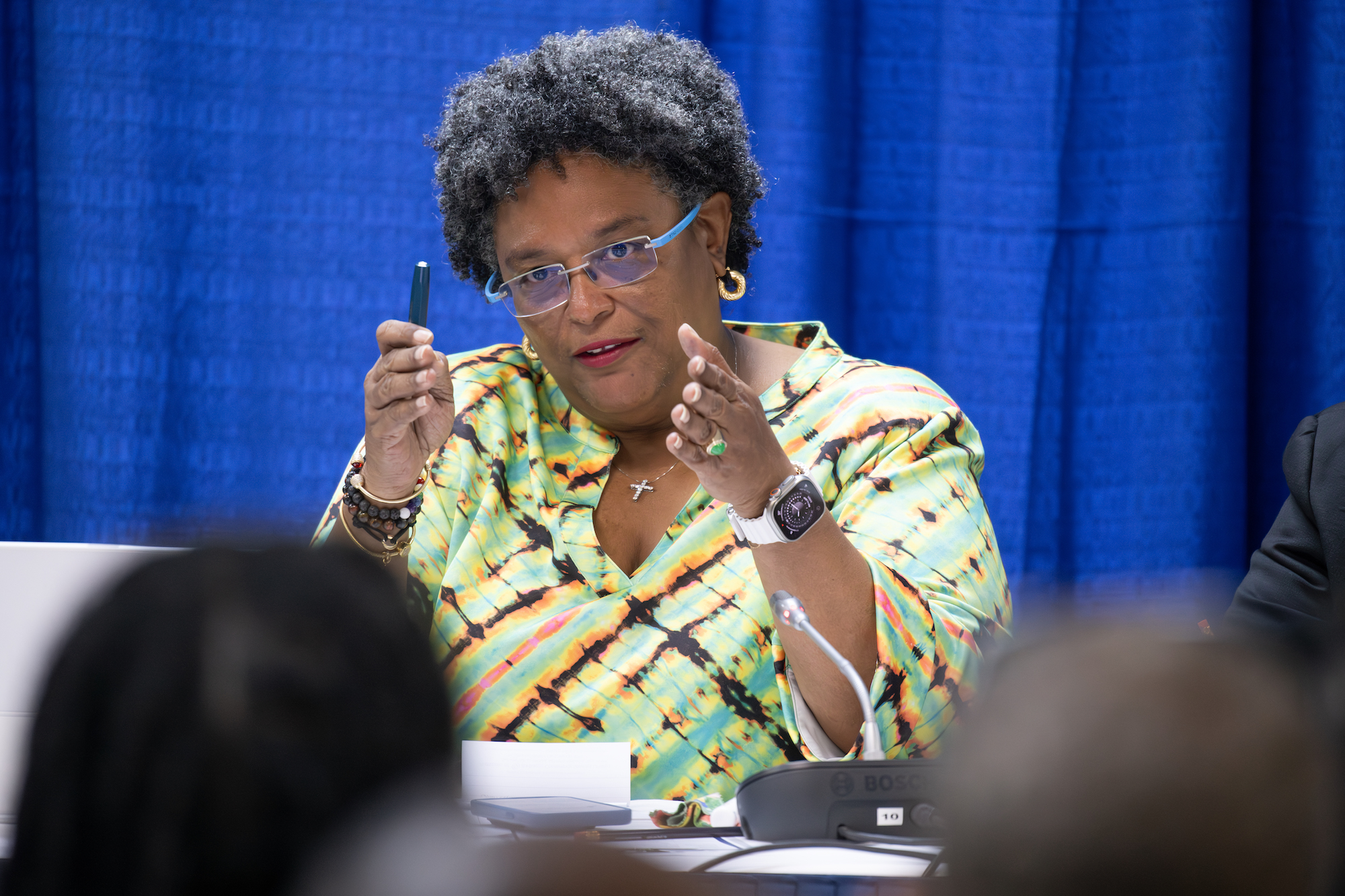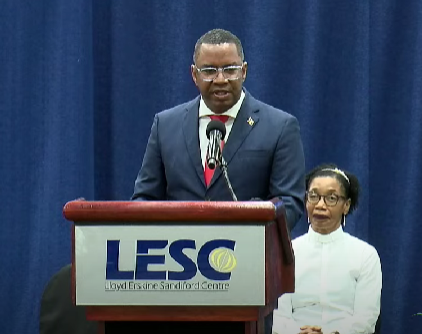World Food Forum 2022 in Rome Highlights Urgent Need for Sustainable Agricultural Investments

October 16, 2024
The World Food Forum in Rome gathers global stakeholders to discuss sustainable food systems. Barbados' Prime Minister emphasizes the Right to Food theme, urging investments in agriculture for food security and combating non-communicable diseases.
The optics could not be more impressive. In Rome, a high-level ceremony at the Food and Agriculture Organisation (FAO) headquarters kicked off the fourth edition of the World Food Forum (WFF), the largest annual gathering of agrifood systems stakeholders globally.
In a video message, Mia Mottley joined a long list of presidents and premiers, from Cuba to Peru, Lesotho to Liberia, at an event to forge new pathways for a sustainable, inclusive, and food-secure future.
In front of global experts, influencers, investors, and change agents, the Prime Minister of Barbados was, as usual, forceful. She said that this year’s World Food Day theme, Right to Food for a Better Life and a Better Future, resonates with the Caribbean, where the high costs of healthy diets demand urgent action.
Mottley called for sustainable investments in agriculture and water management to enhance food security, emphasising the importance of innovation and collaboration in transforming agrifood systems. She pointed out that the Caribbean is reportedly the most expensive place for healthy food.
The optics are poignant. On this very day, a renowned surgeon and warrior against non-communicable diseases was being honoured. Access to healthy, nutritious food is key to disease prevention, but on this day, the Senior Minister of Health and Wellness, another surgeon, showed intent to reform the primary healthcare system to combat NCDs.
Yet, these powerful images—a strident Prime Minister, an iconic medic, and a minister intent on changing the face of healthcare in the face of a relentless epidemic of lifestyle diseases—all paraded on the television screens of the nightly news programme of the state television station, send one message.
We are aware of another, more ominous message: posters advertising the sale of prime agricultural lands for residential development—a troubling trend that warns of a nation’s increasing inability to feed itself, warranting urgent scrutiny.
This shift, primarily driven by sugar planters divesting from their vast tracts of fertile land—particularly in areas like Constant, St George, and Newton, Christ Church—represents not only a cowardly exit strategy after 300 years of agricultural dominance but also poses significant risks to our food security and sovereignty.
The sugar industry is no longer the backbone of Barbados’ economy. We are not pining for a return to its primacy. What we are now witnessing is a retreat that raises serious questions about the future of agricultural production on the island. The land being sold is not merely real estate; it is some of the most fertile soil available, actively cultivated and essential for sustaining local food production. As these lands are converted into residential developments, we face a dual crisis: the erosion of our agricultural capabilities and an increasing reliance on imported food at a time when global supply chains are under strain.
Recent statements from the Barbados Agricultural Society have echoed these concerns, highlighting that the loss of farmland threatens not just sugar production but the broader agricultural landscape necessary to ensure food security for Barbadians. With rising prices and increasing global instability, we cannot afford to sacrifice our ability to produce food locally.
This trend reflects a broader pattern of neglect towards agriculture in favour of short-term economic gains from residential development. Forty years ago, the state stepped in to engage in the most significant reforms of the system of land tenure in Barbadian history with the Freehold Tenantries Purchase Act, which could facilitate the purchase and preservation of these vital agricultural lands, many of which held permanent families in temporary occupancy and eternal peonage.
Now, many large tracts remain underutilised or abandoned, particularly those previously owned by the defunct CLICO insurance company. These lands should be repurposed for sustainable farming rather than lost to urban sprawl. It is time for a second green reform, one that empowers the nation’s farmers to own and grow on their land. Even with the success of the land tenantries legislation, census after census confirms a peculiarly Barbadian feature—landless farmers, those with holdings of less than 0.025 hectares, estimated to be between 25 and 40 per cent of the farming community.
We recommend revisiting and revising the 25-year-old Land for the Landless programme. An urgent upscaling must meet the moment—a planter class seemingly keen to abandon its self-appointed role as stewards of the land. Land can indeed be allowed to reach its maximum economic value on a continent, not on an island of 106,240 acres.
We must continue to rally against this craven trend of land conversion and demand policies that prioritise agricultural sustainability. We must protect our fertile lands not only for their economic value but for their critical role in ensuring our food sovereignty. Some examples are full of regret, such as The Farm, St George, which was broken up more than 30 years ago for residential development after a buyer’s offer for farming was rejected. Let us not look back in regret at the moment we chose optics over action as these fields and hills beyond recall slipped away from the grasp of generations yet to come, needing to be fed and to feed others.


